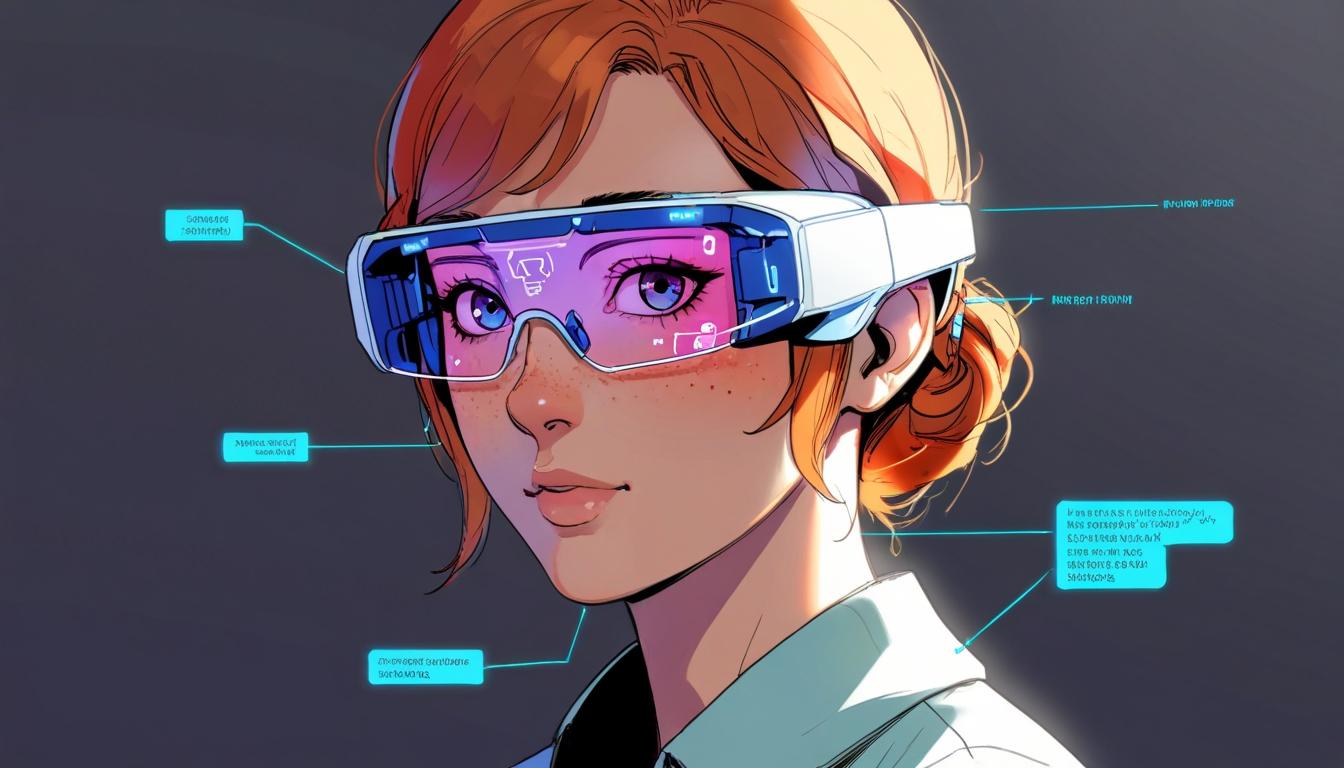Google DeepMind has revealed significant advancements in its Project Astra, an AI-powered system integrated into a pair of smart glasses, showcasing its sophisticated ability to perceive and interpret the world around users. Highlighted in a recent 60 Minutes segment featuring correspondent Scott Pelley, the AI assistant demonstrated an impressive level of articulation, observation, and insight during real-world testing.
Project Astra, developed by Google DeepMind, continuously processes audiovisual data from its surroundings through connected cameras and microphones embedded in the glasses. However, its capacities extend beyond basic object recognition and transcription; it also identifies emotional cues, extrapolates context, and sustains conversations even during pauses or when the wearer interacts with others. Pelley experienced this firsthand when Astra instantly identified Coal Drops Yard, a retail complex in London’s King’s Cross area, and provided detailed background information. When shown Edward Hopper’s painting "Automat," the AI did not limit itself to factual description but interpreted the woman’s body language as "contemplative" and creatively formulated a fictional backstory for the figure.
Demis Hassabis, CEO of DeepMind, remarked on Astra’s rapid progress in understanding the physical world, noting that the AI’s abilities have surpassed engineering team expectations at this stage.
Beyond real-time perception, DeepMind has also been advancing AI-generated photorealistic visuals and videos through a system called Veo 2. This technology now enables the creation of imaginative, yet convincingly realistic images and animations, such as a flying dog with functional wings — a capability that was previously unattainable due to earlier models’ inadequate comprehension of anatomy and motion. This development paves the way for enhanced applications in visual storytelling, augmented reality, filmmaking, and advertising, where smart glasses might not only identify a location but also reconstruct historical appearances in high definition integrated seamlessly with the present environment.
Complementing Astra and Veo 2 is Genie 2, DeepMind’s new world-modeling AI system designed to generate explorable virtual environments. Using a single still image, Genie 2 can transform it into a navigable three-dimensional space visible through the smart glasses. The system dynamically invents content as the user moves through the virtual landscape—for example, converting a photograph of a waterfall into a playable video game level that expands as it is explored. DeepMind utilises these AI-generated environments to train other AI systems, enabling virtual robots to learn and practice tasks repeatedly without the physical risks inherent in real-world trial and error. This simulation loop represents a significant leap for robotics research and development.
Google is actively working to release Astra-powered smart glasses to consumers, aiming to embed this advanced AI perception technology in wearable devices. Initial hardware employs micro-LED displays projecting captions into one eye and directional speakers positioned near the temples for audio feedback, a design intended to be less obtrusive than the original Google Glass visor. Following the launch of Gemini, another AI product featuring screen-sharing and live camera capabilities, Google quickly transitioned these features to be freely available for all Android users. This move is strategically designed to encourage widespread adoption, allowing Google to collect extensive user data and feedback to refine the AI’s performance.
While the promise of such technology is clear, challenges remain regarding privacy, latency, battery life, and social acceptance of smart glasses with near-omniscient AI capabilities. Whether Google can overcome these hurdles and deliver a device that balances functionality, style, and ethical considerations remains to be seen. Nonetheless, the year 2025 increasingly appears poised to mark the mainstream arrival of smart glasses driven by AI assistants like Project Astra.
Source: Noah Wire Services
